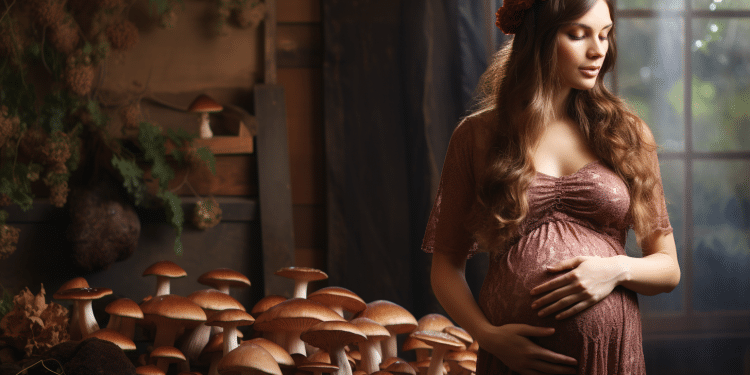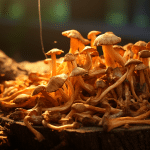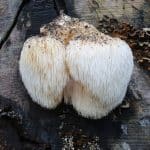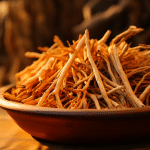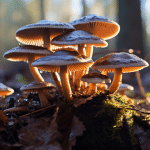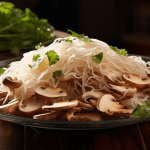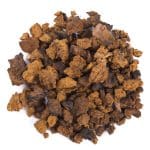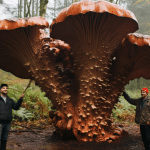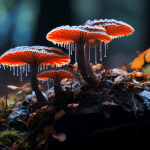Reishi, also known as lingzhi is traditionally known as medicines to maintain long, healthy lives, strengthening mind, body, and spirit. Studies have shown that, besides the benefits for the immune system, they protect the nervous system from damage, aid blood sugar control, and enhance the antioxidant state of the body. But is reishi mushroom safe to take during pregnancy or while breastfeeding?
Can You Take Reishi Mushroom During Pregnancy?
There is an absence of scientific research about reishi in pregnancy. This fact alone makes evaluating its risks and benefits a challenge. An added factor is that reishi extract is classified as food additives, and these products are not strictly regulated in the U.S., making it impossible to know just how powerful any given extract is. You should avoid taking reishi mushrooms if you are pregnant or breastfeeding until you consult your doctor and discuss adding any exogenous supplement to your diet during your pregnancy in case it may interact with another medication or treatment that you are undergoing during your pregnancy.
Reishi mushrooms, often taken in an extract, have been used for thousands of years in traditional Chinese medicine, but some concerns have been raised regarding their safety for pregnant women and their babies.
Before you choose to take reishi during pregnancy, you should be aware of recommended dosages, possible side effects, and risks. Also, remember it is always smart to check with your health care provider before taking any supplements. This is particularly the case when you are pregnant.
Can You Take Reishi Mushroom While Breastfeeding?
You should avoid taking reishi if you are breastfeeding until you consult your doctor, and they can help you determine whether or not you should be taking reishi mushroom while breastfeeding.
If you are breastfeeding, chances are you have heard of lactation cookies, Teas, and methods for increasing milk supply, but you have never wondered what ingredients really spur the most milk production.
Meet Galactagogue, that is quite a mouthful, is not it. Galactagogues are responsible for stimulating and producing breastmilk. Common Galactagogue foods are oatmeal, chickpeas, fenugreek, anise, and moringa, but what about mushrooms. Mungers are packed with essential minerals and are an excellent source of Vitamin D, but they also contain glycaethogues. In fact, mushrooms are an excellent source of galactagogues, particularly the reishi mushrooms.
However, when we did a quick google search, it seemed there were not enough studies confirming Reishi mushrooms are “safe” to eat while breastfeeding.
What we know is Reishi mushrooms have been used for centuries, and have Galactagogue properties, so why wouldn’t they be considered safe or sufficient for helping with breastfeeding. Reishi mushrooms contain more than 400 nutrients and can be traced to 100 B.C. Known as “the mushrooms of immortality,” I cannot think of anyone that needs immune support more than postpartum mothers. While it seems that little research supports mushrooms and breastfeeding, we know that mushrooms are galactagogues, great sources of beta-glucans, supporting hormonal function and general well-being.
Reishi mushrooms are also called “the king of mushrooms” and contain a high amount of antioxidants that fight against body stress. Reishi mushrooms are considered one of, if not the, strongest stress-relieving herbs in both Taoism and traditional Chinese medicine. Reishi soothes the nervous system, reduces the bloodstream cortisol, aids breastfeeding, enhances mood, nutrient utilization, immunity, and sleep. Reishi is also a great tonic for the Shen; with the Shen is our spirit. Reishi improves our connection with our self in positive ways, and also improves our mental and emotional wellbeing.
When it comes to taking Reishi mushrooms, you will want to use high-quality organic powders or tinctures, slowly integrating Reishi mushrooms into your postpartum care over about 4 to 6 weeks. Check with your doctor to find out if Reishi mushrooms are a good fit for your postpartum and breastfeeding journey.
Typical Doses
Official Chinese pharmacopeia guidelines suggest taking six to 12 grams of reishi extract per day, though higher dosages have been used in some clinical trials. Traditional practitioners, however, typically recommend between 0.5 to 1 gram per day for healthy individuals, and 2 to 5 grams per day for chronic illnesses. In the case of very severe illnesses, they will sometimes recommend as much as 15 grams per day.
Adverse Reactions and side effects
The side effects of reishi, which are few in number and generally mild, include skin irritation, dizziness, dry mouth, nosebleeds, bone pain, and stomach discomfort. However, a study published in the summer 2008 issue of “Canadian Journal of Clinical Pharmacology” showed that three different types of human cells taken from adults and children became less viable after exposure to reishi extract. The researchers said that these findings indicate reishi extracts may be potentially toxic and should be used sparingly. According to the health information site maintained by the Susan G. Komen Foundation, reishi should be used carefully by people taking medications for diabetes, as it may reduce blood sugar.
The mushrooms ability to lower blood pressure makes it potentially dangerous to those who have hypotension. People taking blood thinners or those who suffer from bleeding disorders should avoid this food as it may have blood-thinning effects. Use reishi powder with care, as it has been linked to serious liver inflammation and death.
You can find our favorite capsules, powders, and tincture’s on the following pages of our website and learn more about each individually:
Click here to learn more about the best Reishi Mushroom Supplements
Click here to learn more about the best Reishi Mushroom Powder
Click here to learn more about the best Reishi Mushroom Tincture
Click here to learn more about the best Reishi Mushroom Mushroom Gummies
Additional Resources:
Reishi mushroom magical properties and spiritual benefits
Updated 10/24/2022
